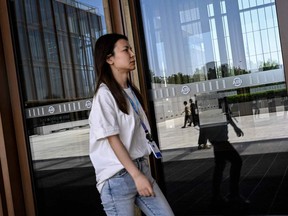The article discusses the Asian Infrastructure Investment Bank (AIIB) and Canada’s decision to halt its activity at the bank. The AIIB is a multilateral development bank that aims to finance infrastructure projects in Asia, with China being its largest shareholder.
Here are some key points from the article:
- Canada’s withdrawal: Canada has decided to suspend its participation in the AIIB due to concerns about the bank’s relationship with the Chinese Communist Party (CCP).
- AIIB’s response: The AIIB has denied any undue influence from the CCP, stating that it does not tolerate any interference from member countries or their political parties.
- Recruitment challenges: The AIIB has struggled to recruit overseas candidates due to concerns about working in China, with some staff members reporting a reluctance to move to the country.
- Member countries: India is the largest beneficiary of the AIIB, with 43 projects approved for a total value of $9.94 billion.
- Skepticism: There has always been skepticism about the AIIB’s relationship with the CCP, given China’s large shareholding and the fact that many Chinese citizens work at the bank.
The article highlights the challenges faced by multilateral development banks in navigating complex international relationships and geopolitical tensions. It also notes that other countries have not followed Canada’s lead in withdrawing from the AIIB, suggesting that there may be differing opinions on the issue.
Some possible implications of this story include:
- Geopolitical tensions: The controversy surrounding the AIIB highlights the ongoing tensions between China and Western countries, particularly over issues like human rights and economic influence.
- Multilateralism: The debate around the AIIB’s relationship with the CCP raises questions about the role of multilateral development banks in addressing global challenges and promoting cooperation among nations.
- Economic implications: Canada’s withdrawal from the AIIB may have implications for Canadian businesses and investors, particularly those involved in infrastructure projects in Asia.
Overall, this story highlights the complexities and challenges faced by international organizations like the AIIB in navigating complex geopolitical relationships and maintaining their independence and credibility.
